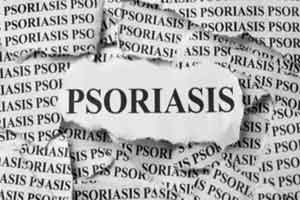- Home
- Editorial
- News
- Practice Guidelines
- Anesthesiology Guidelines
- Cancer Guidelines
- Cardiac Sciences Guidelines
- Critical Care Guidelines
- Dentistry Guidelines
- Dermatology Guidelines
- Diabetes and Endo Guidelines
- Diagnostics Guidelines
- ENT Guidelines
- Featured Practice Guidelines
- Gastroenterology Guidelines
- Geriatrics Guidelines
- Medicine Guidelines
- Nephrology Guidelines
- Neurosciences Guidelines
- Obs and Gynae Guidelines
- Ophthalmology Guidelines
- Orthopaedics Guidelines
- Paediatrics Guidelines
- Psychiatry Guidelines
- Pulmonology Guidelines
- Radiology Guidelines
- Surgery Guidelines
- Urology Guidelines
Clinical Trial finds novel treatment of rare form of psoriasis

RIDGEFIELD, Conn. -- New data from a Phase I clinical trial showing BI 655130, a first-in-class investigational treatment, significantly improved symptoms of generalized pustular psoriasis (GPP), a rare form of psoriasis.
At present, there are no FDA approved treatments for GPP and therefore, there is a strong need for new treatment options for GPP with rapid, strong and persistent efficacy. BI 655130 is a monoclonal antibody that blocks the action of the interleukin-36 receptor (IL-36R), a signalling pathway within the immune system that may play a role in many inflammatory diseases. The Trial has been published in the New England Journal of Medicine (NEJM).
The rare skin disease, GPP, is a chronic condition that is distinct from the more common condition, plaque psoriasis. It has a considerable impact on people's quality of life. The skin becomes red and erupts into numerous blisters of non-infectious pus (pustules), covering wide areas of the body. People who develop GPP may experience an abrupt onset of fever, chills and painful skin lesions. GPP may be associated with life-threatening organ failure and infectious complications, and therefore should be considered a medical emergency.
The newly published clinical data, which were also presented at the recent American Academy of Dermatology (AAD) annual meeting in Washington, D.C., indicate that BI 655130 rapidly improved symptoms in seven patients with GPP, who were experiencing acute, moderate-to-severe disease flares. Five of seven patients in the 20-week, Phase I clinical trial achieved clear or almost clear skin within the first week following a single dose of treatment and all patients achieved this outcome after four weeks. The average improvement in patients' skin symptoms was close to 80 percent at week four and was maintained until the end of the study (week 20).
"The tailored targeting of the IL-36 pathway is one of the most exciting new areas in dermatology research, and progress in this mechanism has been eagerly anticipated by the scientific community," commented the trial's principal investigator, Professor Hervé Bachelez, Hôpital Saint-Louis, Paris, France. "This trial provides long-awaited clinical data that demonstrates the positive effect of blocking IL-36 action as a potential, novel treatment approach. The rapid improvement seen in patients from just a single dose of BI 655130 shows strong potential for the future treatment of GPP."
"BI 655130 is a novel antibody discovered by Boehringer Ingelheim and is being investigated for the treatment of multiple inflammatory diseases in the hope of transforming the care currently available for these patients," said Dr. Jan Poth, Therapeutic Area Head, CNS and Immunology at Boehringer Ingelheim.
"We are one of the first companies to focus on targeting IL-36 in dermatology, a reflection of our long-term commitment to researching and developing transformative medicines for patients where there is still high unmet need. Due to its potential, we are moving to the next phase of clinical trials, involving larger numbers of patients with GPP. Trials of BI 655130 are also underway in other immune-related conditions, such as palmoplantar pustulosis, ulcerative colitis, Crohn's disease and atopic dermatitis," continued Poth.
Study details
The Phase I trial is the first of its kind to include patients who were experiencing an acute, moderate-to-severe flare of GPP.
Each of the seven patients received a single intravenous dose of BI 655130 and was monitored for 20 weeks. The severity of GPP was assessed using the Generalized Pustular Psoriasis Physician Global Assessment score and the Generalized Pustular Psoriasis Area and Severity Index score.
- At the end of week one, clear or almost clear skin was achieved in five of seven patients, and in all study participants by the fourth week.
- At the end of week two, a 73.2 percent average improvement in skin symptom was observed in all study participants.
- Overall, BI 655130 was well tolerated with no drug-related severe or serious adverse events or safety signals.
BI 655130 is the second compound developed by Boehringer Ingelheim's immunology division; the first, risankizumab, an IL-23 blocker is part of a collaboration between Boehringer Ingelheim and AbbVie, with AbbVie leading future development and commercialization of risankizumab globally.

Disclaimer: This site is primarily intended for healthcare professionals. Any content/information on this website does not replace the advice of medical and/or health professionals and should not be construed as medical/diagnostic advice/endorsement or prescription. Use of this site is subject to our terms of use, privacy policy, advertisement policy. © 2020 Minerva Medical Treatment Pvt Ltd